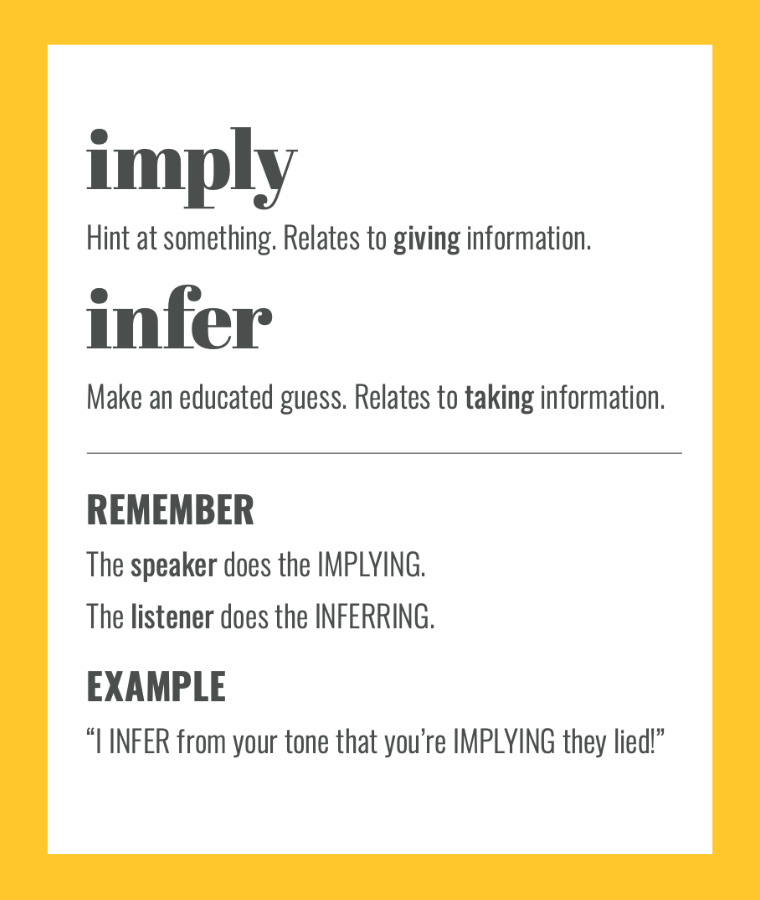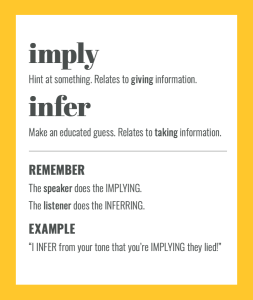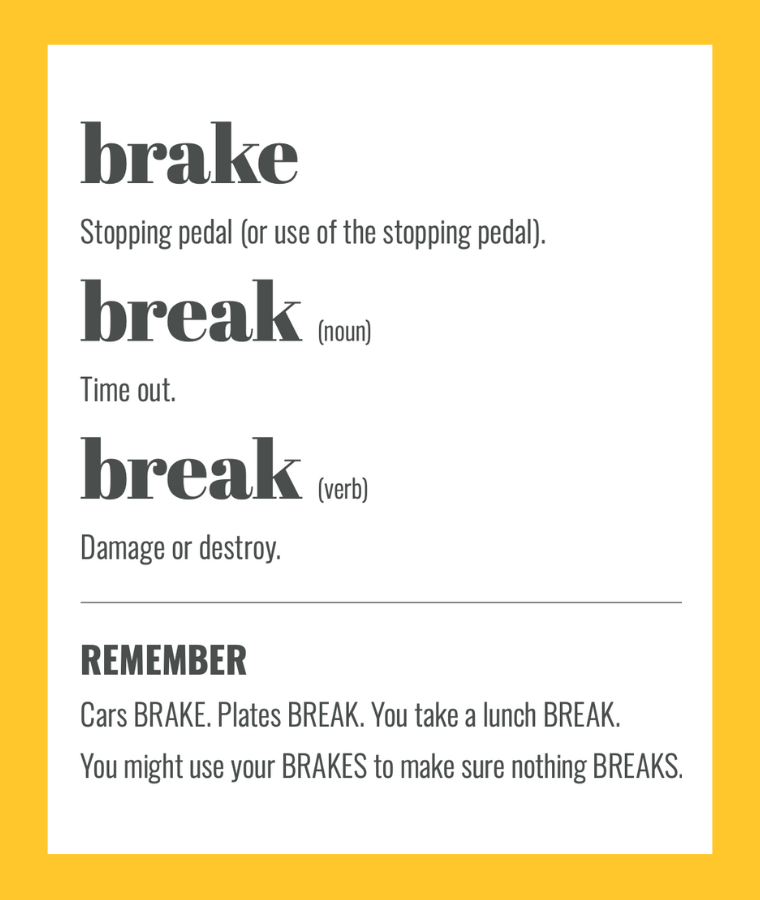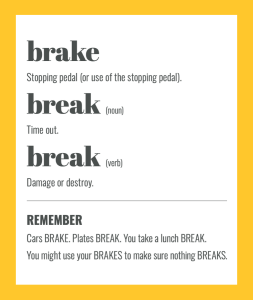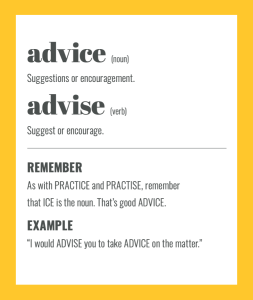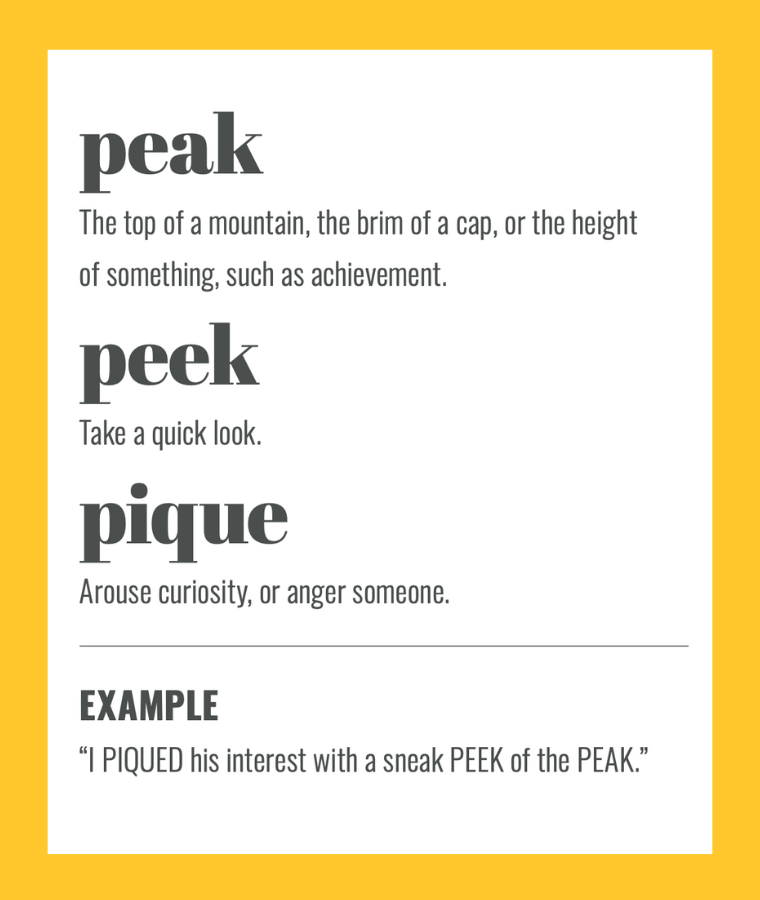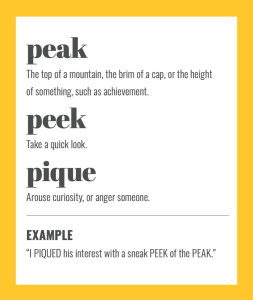IMPLY and INFER are easy to confuse – especially if you’re new to the English language. But these two words are actually opposites.
Here’s a simple tip to remember the difference between IMPLY and INFER.
When to use IMPLY
IMPLY is a verb that means to hint at something.
IMPLYING is done by the speaker. It relates to giving information.
“Are you IMPLYING that I lied?”
When to use INFER
INFER is a verb that means to make an educated guess from the information presented to you.
INFERRING is done by the listener. It relates to taking information.
“From what you’ve said, I INFER that it wasn’t the first time this had happened?”
Get more tips in The Little Book of Confusables
Fun, memorable spelling and usage tips for 600 commonly confused words, packed into 300+ gorgeous pages for just £11.95. You’ll wonder how you managed without it!
2023 GOLD award winner at the eLit book awards!


